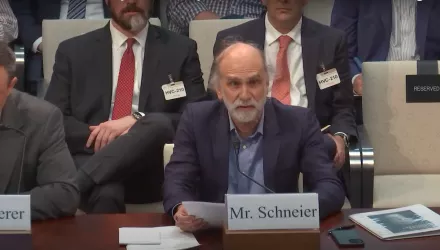
The United States nor its allies alone cannot counter adversarial and criminal cyber activity in the digital domain-–the reach, scale, stealth, and danger are simply too great for any one country to bear. As such, calls for international operational collaboration in cybersecurity and emerging technologies are increasing. Former U.S. State Department Cyber Diplomat Chris Painter noted in a December 2020 Foreign Policy article that there must be more leadership and partnership on global cyber cooperation. What follows represents a thinking-through of what this ought to entail.
Operational Collaboration
First, it’s important to first understand what is meant by operational collaboration. At its core, this means conducting activities together (jointly, multilaterally, etc.) to achieve an outcome—in the context of cybersecurity, it may be defensive or offensive activities in an effort toward enhanced security and resilience. In a 2018 report entitled An Operational Collaboration Framework for Cybersecurity, the Aspen Institute defined this concept as the public and private sectors “working together to protect, mitigate, prevent (during steady state), and respond and recover (during an incident) with several cross-cutting enablers.” As there are efforts to create opportunities for operational collaboration at a domestic level, there should be a similar focus on the international level.
There are some notable efforts aimed at state-sponsored international collaboration. Established in 2018 from the U.S. National Cyber Strategy, the U.S. State Department-led Cyber Deterrence Initiative (CDI) provides a framework for deterring and responding to malicious cyber activities nation states. At its October 2020 launch it was described by Assistant Secretary of State for the Bureau of International Security and Nonproliferation Christopher Ashley Ford thusly:
The United States will launch an international Cyber Deterrence Initiative to build […] a coalition [of states] and develop tailored strategies to ensure adversaries understand the consequences of their own malicious cyber behavior. The United States will work with like-minded states to coordinate and support each other’s responses to significant malicious cyber incidents, including through intelligence sharing, buttressing of attribution claims, public statements of support for responsive actions taken, and joint imposition of consequences against malign actors.
Zabierek, Lauren. “The New Frontier of Democratic Self-Defense.” Journal of International Relations and Sustainable Development, Winter 2022
The full text of this publication is available via Journal of International Relations and Sustainable Development.




